#Matthias Habich
Explore tagged Tumblr posts
Text
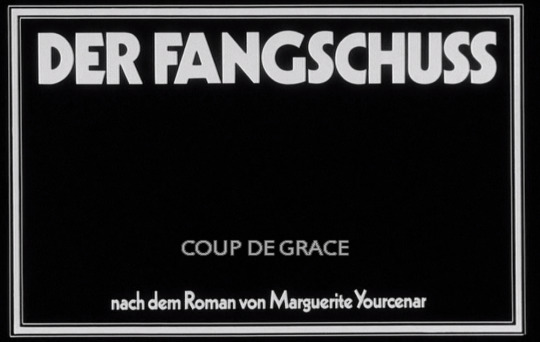
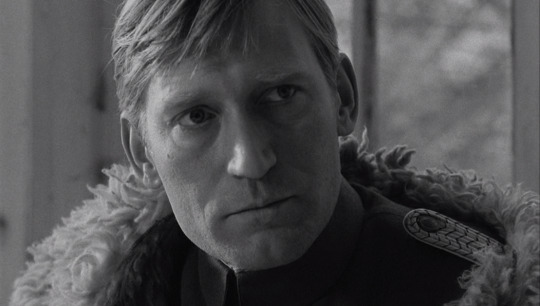
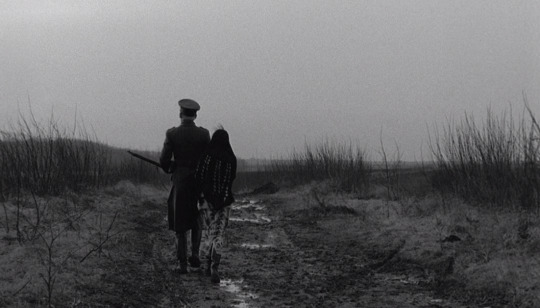
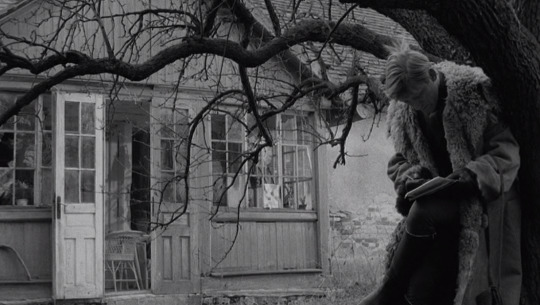
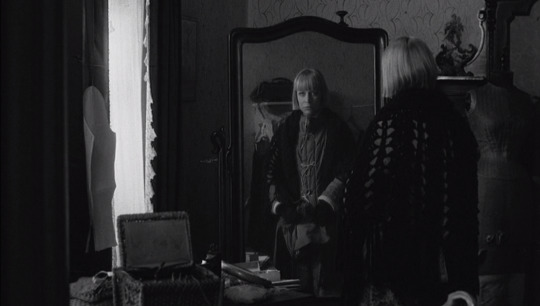




Coup de Grace (1976)
#coup de grace#volker schlondorff#margarethe von trotta#matthias habich#rudiger kirschstein#mathieu carriere#talks
4 notes
·
View notes
Text








das urteil, oliver hirschbiegel 1997
#das urteil#oliver hirschbiegel#1997#klaus löwitsch#matthias habich#anya hoffmann#angela quast#rudolf wessely#wilfried hochholdinger#das experiment#zweikampf#bis ans ende der welt#rosenstraße#schultze gets the blues#the ninth gate#the terminal#about photography#material#buw#landmann#cast the outlaw
0 notes
Text
Duell - Enemy at the Gates
Story: Stalingrad, 1942: Während sich die deutschen und die russischen Truppen in Stalingrad gegenseitig grausame Verluste zufügen, sieht der Rest der Welt voll Furcht dem Ausgang dieser Schlacht entgegen. Doch der gefürchtete russische Präzisionsschütze Vassili Zaitsev kennt keine Angst und schießt einen seiner Gegner nach dem anderen nieder. Vassilis legendärer Ruf führt bald zu einem Duell mit…

View On WordPress
#Action#Alain Godard#Bob Hoskins#Clemens Schick#Drama#Ed Harris#Eva Mattes#Gabriel Thomson#Hans-Martin Stier#Heldenpathos#Ivan Shvedoff#James Horner#Jean-Jacques Annaud#John D. Schofield#Joseph Fiennes#Jude Law#Kriegsfilm#Major König#Matthias Habich#Rachel Weisz#Robert Fraisse#Ron Perlman#Scharfschütze#Sophie Rois#Stalingrad#Vassili Zaitsev#Zweiter Weltkrieg
0 notes
Photo

Margarethe von Trotta in Coup de Grâce (Volker Schlöndorff, 1976) Cast: Matthias Habich, Margarethe von Trotta, Rüdiger Kirschstein, Valeska Gert. Marc Eyraud, Hannes Kaetner, Franz Morak, Frederik von Zischy, Mathieu Carrière. Screenplay: Geneviève Dormann, Margarethe von Trotta, Jutta Brückner. based on a novel by Marguerite Yourcenar. Cinematography: Igor Luther. Film editing: Jane Seitz. Music: Stanley Myers. Coup de Grâce is a film as chilly as its setting: a castle in Latvia in the bleak winter of 1919-1920, as the Bolsheviks begin to overwhelm their opponents in the Baltic states, many of whom are Germans determined to defeat the communists. The castle belongs to Conrad de Reval (Rüdiger Kirschstein), who has gathered there some of the remnants of his forces, including his friend Erich von Lhomond (Matthias Habich). It becomes apparent very early, especially from the glances between Conrad and Erich, that they may be more than just friends. It's not so apparent to Conrad's sister, Sophie (Margarethe von Trotta), who is still living in the castle along with her aged aunt (Valeska Gert). Sophie makes a play for Conrad, but it's only partially successful. To spite and to tantalize him, she begins to have affairs with some of the other men staying at the castle. Meanwhile, the castle comes under attack from the Bolsheviks, some of whom are also Sophie's friends. Von Trotta gives a complex portrayal of Sophie, but is somewhat undermined by the intricacies of the relationships among the various characters and the difficulty of sorting out their several backstories. We don't know enough about her, or Erich or Conrad, to get a full sense of why any of them behave as they do, other than the moral fatigue of having fought the war for so long. In the end, the film becomes most memorable for the performance of Gert, whose grotesque and macabre Aunt Praskovia steals every scene in which she appears. In the 1920s, Gert had been a silent film actress and a cabaret performer -- she would have fit right in with the "divine decadence" of the Kit Kat Kub in Bob Fosse's Cabaret (1972). Although Coup de Grâce has a strong final scene, the slackness of the narrative thread in the film deprives it of some of its impact. Still, good performances, an effective recreation of the historical period, and the impressive black and white cinematography by Igor Luther make it worth seeing.
2 notes
·
View notes
Text

#ProyeccionDeVida
📣 Kino Cat / Cine Tulipán, presenta:
🎬 “CAÓTICA ANA”

🔎 Género: Drama / Intriga / Romance
⌛️ Duración: 119 minutos
✍️ Guion: Julio Medem

🎼 Música: Jocelyn Pook
📷 Fotografía: Mario Montero
🗯 Argumento: Ana (Manuela Vellés) y su mejor amiga Linda (Bebe) comparten el piso que una mecenas de jóvenes talentos tiene en Madrid, y donde también se refugian otros aspirantes a artistas, entre ellos un chico saharaui y un anglosajón. Antes de llegar a la capital, Ana vivía con un padre hippy, en Ibiza, donde trabajaba de camarera.

👥 Reparto: Charlotte Rampling (Justine), Manuela Vellés (Ana), Nicolas Cazalé (Said), Asier Newman (Anglo), Matthias Habich (Klaus), Lluís Homar (Ismael), Gerrit Graham (Míster Halcón), Raúl Peña (Lucas) y Leslie Charles (Jovoskaya).
📢 Dirección: Julio Medem

© Productoras: Alicia Produce & Sogecine.
🌎 País: España
📅 Año: 2007

📽 Proyección:
📆 Martes 19 de Noviembre
🕖 7:30pm.
🐈 El Gato Tulipán (Bajada de Baños 350 – Barranco)
🚶♀️🚶♂️ Ingreso libre
0 notes
Text

Passagier, Der - Welcome to Germany BRD 1988 Regie: Thomas Brasch Darsteller: Gedeon Burkhard, Matthias Habich Rollen: Janko, Koerner
0 notes
Text
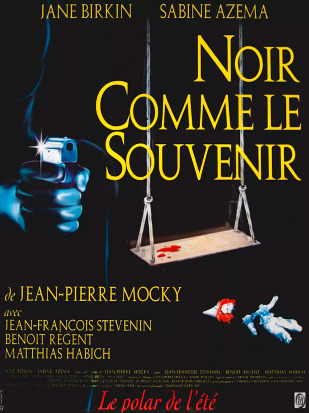
"Noir comme le Souvenir" de Jean-Pierre Mocky (1995) avec Jane Birkin, Sabine Azéma, Jean-François Stévenin, Matthias Habich, Benoît Régent, Jenny Alpha, Vanessa Larré, Alain Fourès, Jany Holt et la jeune Marina Rollman, juillet 2023.
0 notes
Photo




Coup de Grâce (1976) dir. Volker Schlöndorff
#Coup de Grâce#Der Fangschuss#Volker Schlöndorff#Margarethe von Trotta#Matthias Habich#Movies#Film#German Cinema#Criterion Collection#Once in a great while those characters come along...
12 notes
·
View notes
Photo

#Der Untergang#Downfall#Oliver Hirschbiegel#Bruno Ganz#Alexandra Maria Lara#Corinna Harfouch#Ulrich Matthes#Juliane Köhler#Heino Ferch#Christian Berkel#Matthias Habich#Thomas Kretschmann#Rolf Kanies#Christian Redl#Ulrich Noethen#Michael Mendl
12 notes
·
View notes
Photo

COUP DE GRÂCE (1976). Volker Schlöndorff directs Margarethe von Trotta whose unrequited love for an officer leads to tragedy.
#film#cinema#1970s#margarethe von trotta#coup de grace#volker schlöndorff#love#unrequited love#disaster#tragedy#matthias habich#novel#adaptation#romance
34 notes
·
View notes
Photo





Berlin Syndrome (2017)
“Trim off some of the fat and lean more heavily into Clare’s backstory than into Andi’s and maybe Berlin Syndrome’d be the tight, “most underrated of 2017”-list topper it’s so capable of being. But alas we’re left with a slightly blemished product that’s good but could be greater.”
http://bit.ly/2EpocYP
10 notes
·
View notes
Photo

Nowhere in Africa (2001) Nirgendwo in Afrika (original title)
A German Jewish refugee family moves to and adjusts to a farm life in 1930s Kenya.
This is one of the most touching and moving films I have watched recently. I thought about this story for a few days after I watched this film. It’s really beautifully made and acted. Do check it out, I highly recommend it.
youtube
#Nowhere in Africa#Nirgendwo in Afrika#Africa#Kenya#WW2#Jewish refugees#refugee#second world war#true stories#good films#film review#short film review#Merab Ninidze#Juliane Köhler#Matthias Habich#Karoline Eckertz#swahili#british empire#german films#deutschland#foreigner films#european cinema
2 notes
·
View notes
Photo

Berlin Syndrome
A passionate holiday romance leads to an obsessive relationship, when an Australian photojournalist wakes one morning in a Berlin apartment and is unable to leave.
#2017#Movies#May#drama#horror#mystery#Teresa Palmer#Max Riemelt#Matthias Habich#sundance#film festival
2 notes
·
View notes
Text
Berlin Syndrome (2017) Review

Wasn’t originally planning to see this film. Then me and my friend one day were very bored, so we went and saw it. Was pleasantly surprised.
Plot: A passionate holiday romance leads to an obsessive relationship, when an Australian photojournalist wakes one morning in a Berlin apartment and is unable to leave.
A tale of kidnapping, where a woman falls for this mysterious guy, follows him into his apartment, come together in the biblical manner and then suddenly find themselves being held captive by said guy in his locked apartment, and being treated as a pet. Fun times, eh? In all fairness this film comes out at a very good time, as with all these big scale summer blockbusters it’s nice to see a more smaller and confined film, that is pretty much based in one location, and where the story mainly focuses on only two characters, the captor and the victim. This is where this film shines. You really do feel kind of claustrophobic when watching certain scenes of the film, and certain moments of tension really make this to be a very interesting watch. What also helps is the very well done cinematography. The filming style really reminded me a lot of another indie flick this year ‘Personal Shopper’, where the shots really focuses on showing off the location, with ‘Personal Shopper’ being in Paris and ‘Berlin Syndrome’ being in, well, Berlin.
That being said, this is far from a perfect film. Throughout the movie there are quite a few plot holes, specifically with certain character motivations. The character of Clare (played by Teresa Palmer) never makes it quite clear exactly what she wants, and as she is held captive she sometimes sympathises with her captor Andi, then in another scene starts screaming and trying to attack him. And yes, I get that the film tries to reference Stockholm syndrome here, but I didn’t feel like the script made it clear enough and instead just created a character with multiple characteristics that didn’t work together. However, Teresa Palmer herself does a great job in this movie, possibly her strongest role to-date, and even in the very first opening scenes of the film she does a great job conveying an enthusiastic stranger in a stranger’s land. Max Riemelt plays her captor Andi, and talk about a guy who is creepy. As in he was uncomfortably creepy, not just with Clare, but with anyone he spoke with, that is with his father, his colleagues from work, and I just wondered how no one questioned his actions. He acts weird wherever he is, so someone was bound to have said something, but no, most of the characters simply let his whole creepy factor slide past and I did not buy that. But once again, the actual performance by Riemelt was good, this is more a problem with the writing and underwritten characters.
The film goes on for only just under 2 hours, and you feel it, as there were many parts where the film drags on. I’m someone who usually really liked slow paced films, however here there are certain scenes that have great moments of tension and character work, but then there are others where you just wish for the film to hurry up and get it’s destination. Talking about the destination, the ending is a bit disappointing, since with the build up and the whole thing with Stockholm syndrome being involved, I expected the ending to be more powerful, however it goes quite the banal way.
Though I did still really enjoy ‘Berlin Syndrome’, and I’d definitely recommend this film to go and see for anyone who is getting tired of all the big budget blockbuster flicks and watch something smaller and more simpler.
Overall score: 7/10
TOP MOVIE QUOTE: “Can’t you just be normal?”

#berlin syndrome#teresa palmer#max riemelt#germany#film#movie#movie reviews#film reviews#thriller#berlin syndrome review#stockholm syndrome#2017#cate shortland#matthias habich#kidnapping#psychological thriller#indie#drama#obssesion#cinema#watershed
8 notes
·
View notes
Photo

BERLIN SYNDROME | 2017
The Original Bechdel:
Are there at least two named female characters? - Yes. Claire, and Franka.
Do these characters ever have a conversation? - No, Claire speaks to Franka in the end. Franka does not respond.
Do they speak about something other than a man?
The Racial Bechdel:
Are there at least two named characters of color? - No.
Do these characters ever have a conversation?
Do they speak about something other than a white person?
The LGBTQIA+ Bechdel
Are there at least two LGBTQIA+ identifying characters? - No.
Do these characters ever have a conversation?
Do they speak about something other than a cisgender, heterosexual person?
CONSENSUS: 1/9
#berlin syndrome#lgbt bechdel#bechdel test#racial bechdel#teresa palmer#max riemelt#Matthias Habich#Emma Bading#Elmira Bahrami#Christoph Franken#Lucie Aron#Nassim Avat
4 notes
·
View notes
Photo

BERLIN SYNDROME | 2017 | CATE SHORTLAND
★★★☆☆ 67% Rotten Tomatoes
While holidaying in Berlin, Australian photographer, Clare, meets Andi, a charismatic local man and there is an instant attraction between them. A night of passion ensues. But what initially appears to be the start of a romance, takes an unexpected and sinister turn when Clare wakes the following morning to discover Andi has left for work and locked her in his apartment. An easy mistake to make, of course, except Andi has no intention of letting her go again. Ever.
#berlin syndrome#female directors#women directors#cate shortland#teresa palmer#Max Riemelt#Matthias Habich#Emma Bading#Elmira Bahrami#Christoph Franken#Lucie Aron#Nassim Avat
2 notes
·
View notes